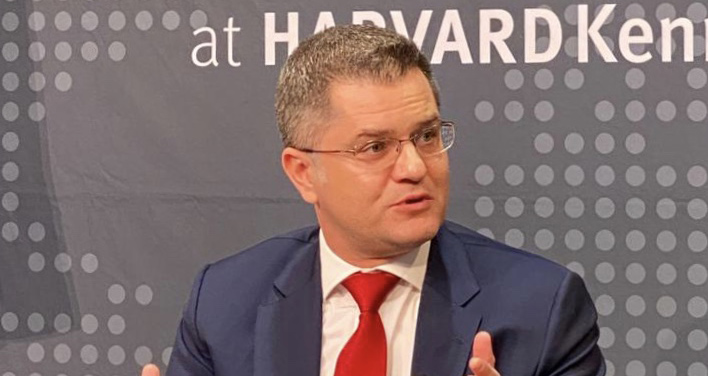European Russophobia and Europe’s Rejection of Peace: A Two-Century Failure
Europe has repeatedly rejected peace with Russia at moments when a negotiated settlement was available, and those rejections have proven profoundly self-defeating. Read more
Many European governments and institutions continue to tolerate the regime of Serbian President Aleksandar Vučić despite its descent into autocracy, writes Vuk Jeremić.
Vuk Jeremić is the president of Serbia’s opposition People’s Party, a liberal-conservative political party, having formerly served as Serbian foreign minister and president of the UN General Assembly.

Shocking recent footage of Serbian police brutality, unmatched anywhere in contemporary Europe, has gone viral across the globe.
Headlines across the continent and around the world confirm what every Balkan watcher has known for years: democracy in Serbia is held hostage by the regime of president Aleksandar Vučić, who has ruled the country with unvarnished venality since taking power in 2012.
Over the past week, tens of thousands of protesters have taken to the streets of Belgrade and other cities across the country to protest, in response to a pattern of conduct entirely unbecoming of the leader of an EU candidate country.
The protesters embodied Serbia’s silent democratic majority, constituting a faithful cross-section of our society: high school and university students, teachers and professors, doctors and lawyers, pensioners and the unemployed, underpaid workers and struggling artists, human rights advocates, environmental activists and veterans.
All are united in common cause against the undisputed Balkan champion of a nascent, pan-European axis of autocracy.
The article's full-text is available here.